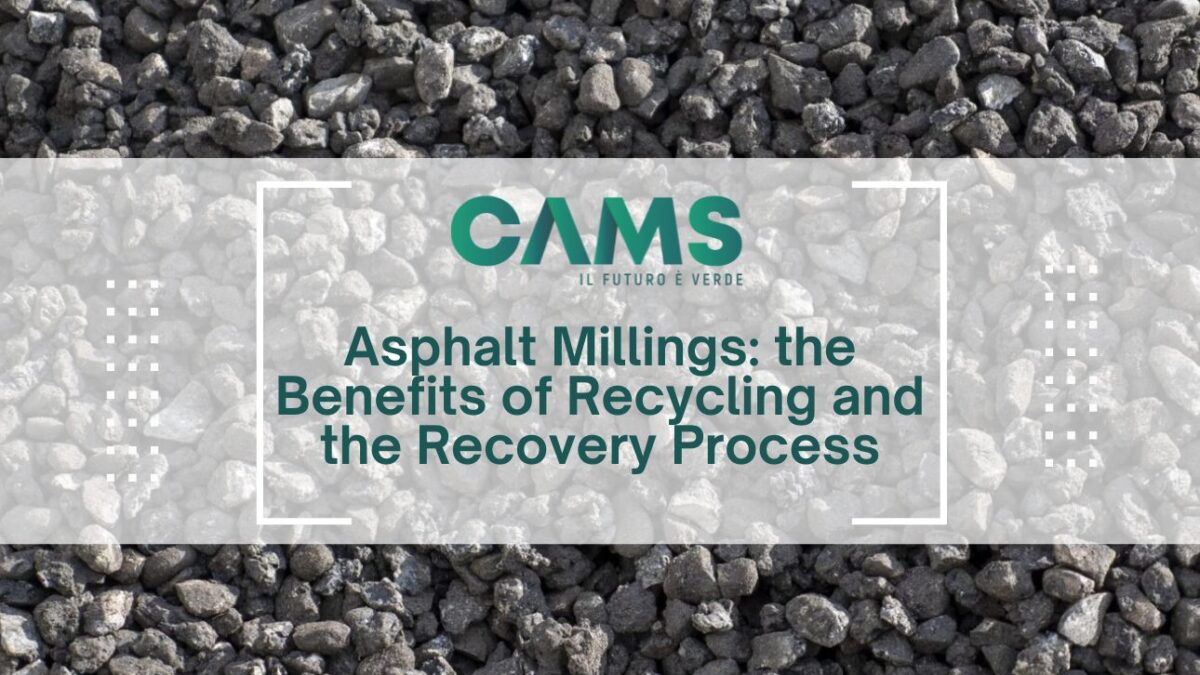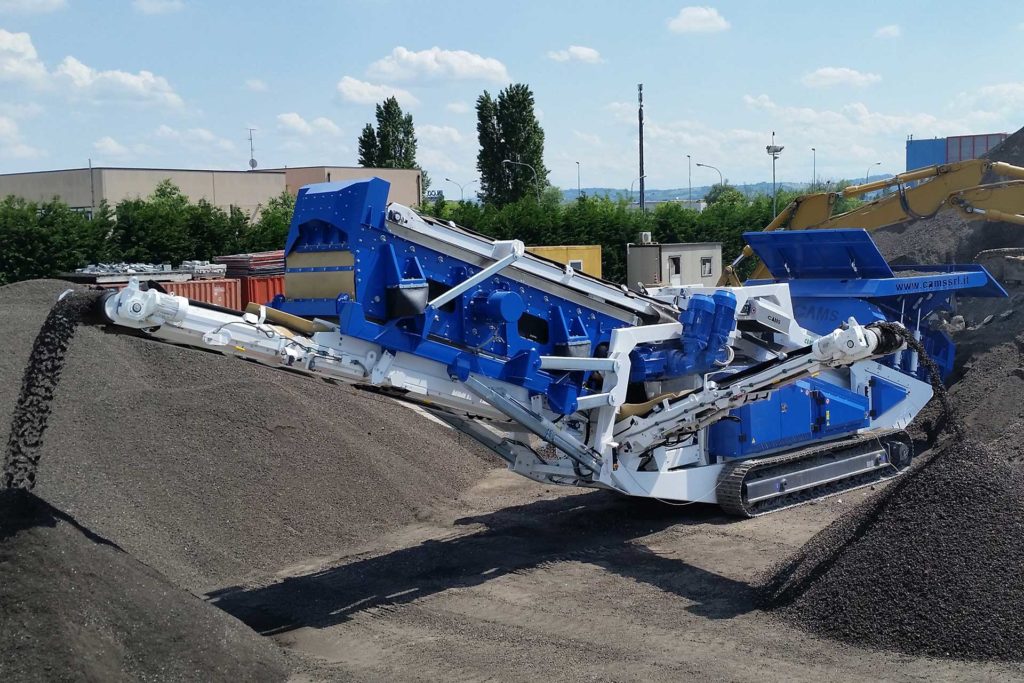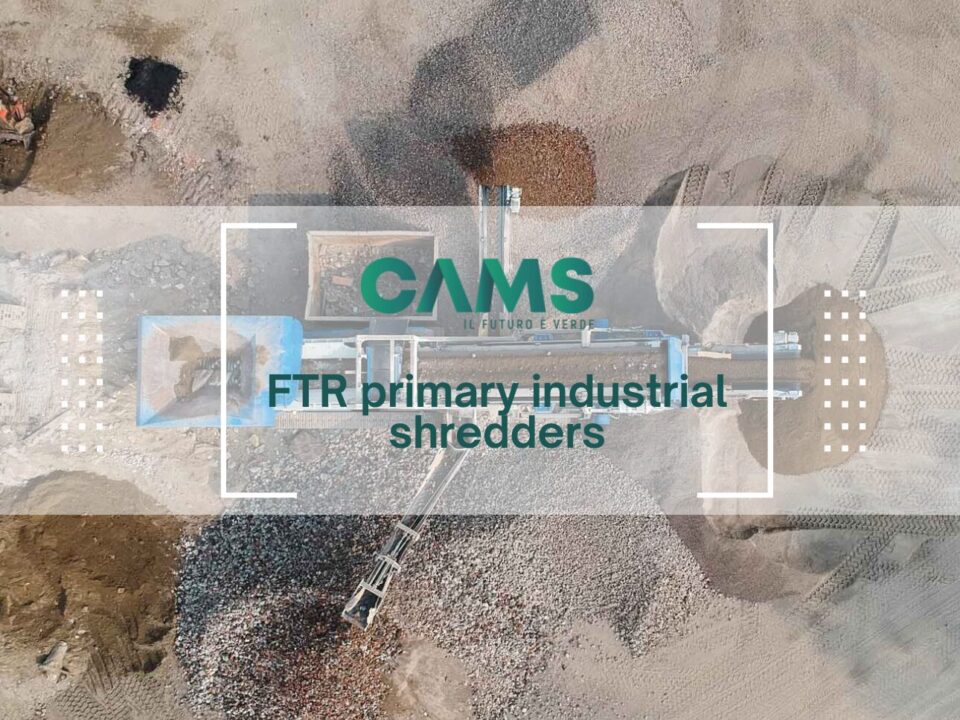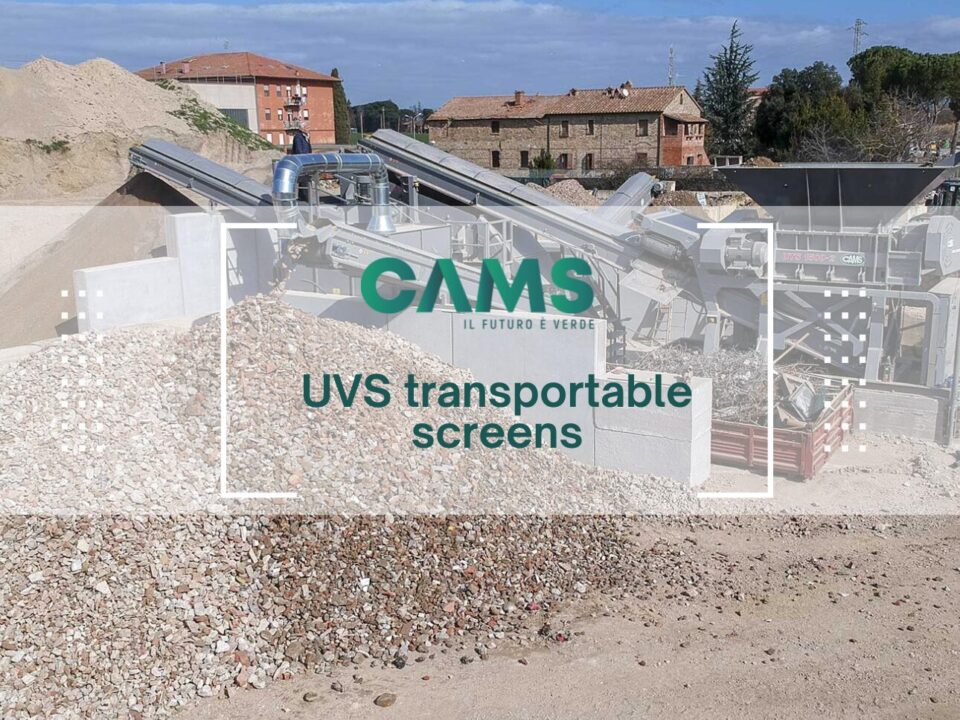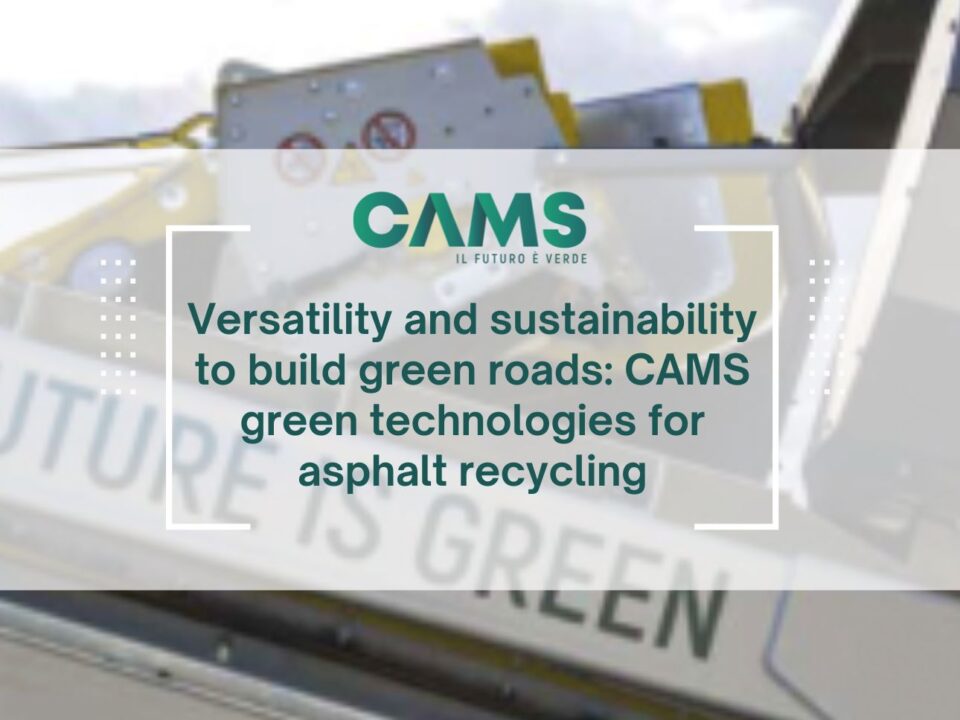Asphalt millings are an aggregate obtained through block crushing and cold or hot milling of the bituminous layers of road pavements. This 100% recyclable material is a resource for companies and the economy, as well as for the protection of the environment and the territory.
The Benefits of Asphalt Recycling
Asphalt millings fall into the category of construction and demolition waste and are classified as non-hazardous waste under code CER 170302 (bituminous mixtures not containing coal tar).
The reuse and valorization of this material in the road construction sector bring enormous benefits both for industry operators and public administrations, contributing to sustainability and circular economy goals.
Economic Savings
Using recycled asphalt for road pavements provides a financial benefit: lower costs for new construction materials, rehabilitation, or virgin aggregates.
Environmental Protection
The use of RAP (Reclaimed Asphalt Pavement) helps to reduce greenhouse gas emissions.
Reduced Use of Natural Resources
Preservation of natural resources such as stones, sand, and gravel, which are non-renewable.
Less Waste in Landfills
The recycling process reduces waste in landfills by 55 million cubic meters, as defined in the NAPA sustainability report.
Greater Durability and Longevity of Pavements
Road pavements made with recycled asphalt materials have greater stiffness and a lower probability of cracking, meaning fewer repairs and maintenance in the future.
Not Only for Road Pavements
The by-product obtained from recycled asphalt is used in many other fields beyond infrastructure pavements.
Excellent RAP Quality
The quality of the recycled product is equal to the original.
In summary, asphalt millings recycling is an eco-sustainable and cost-effective practice. Among construction and demolition waste, this is the only material that is 100% recyclable countless times, with a savings of almost 50% in road pavement maintenance costs thanks to bitumen recovery.
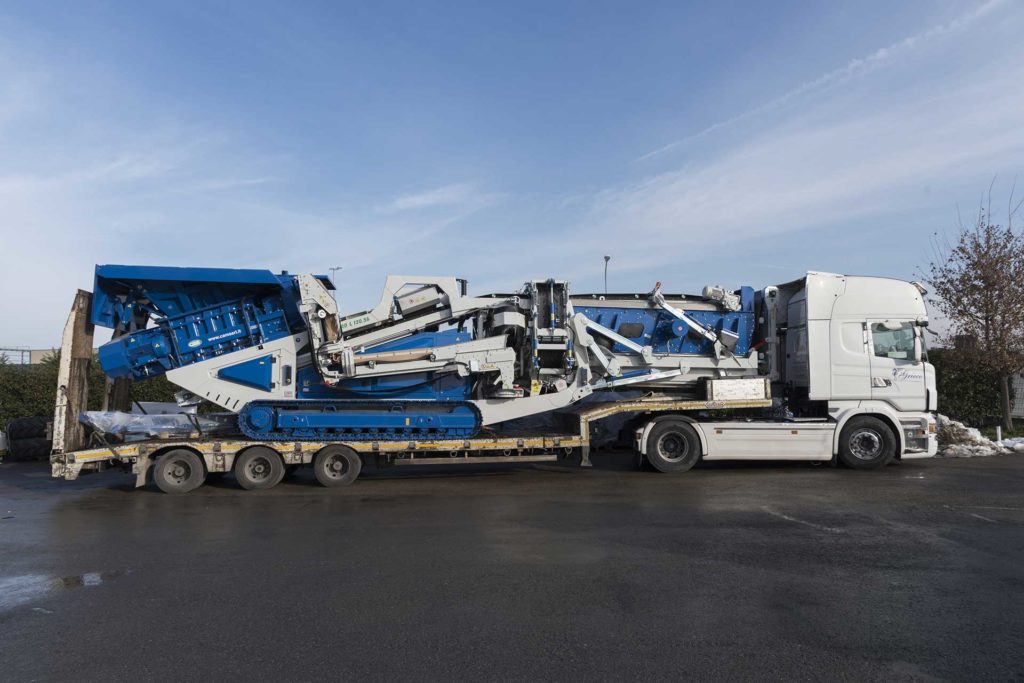
Asphalt Millings Recovery Techniques
The two main techniques for recovering this material are: hot recycling, with recovery of up to 50% of the millings, and cold recycling, with recovery of up to 100% of the product.
Hot recycling consists of heating the aggregates above 150°C, while cold recycling does not involve heating the aggregates. Instead, the millings are mixed with bituminous binder, water, cement, and possibly virgin aggregates. These treatments can be carried out in fixed plants or directly on site with special recycling trains that allow the pavement to be recycled in place.
Operating Methods for Asphalt Millings Recovery: Continuous and Batch
Continuous plants operate without interruptions: the material is mixed inside a drum, which also functions as a mixer. This system is simple, with low maintenance costs, but requires precise control of the mixture even before the aggregates enter the dryer.
Batch plants are the most widespread worldwide for asphalt production. They provide more flexibility and higher quality of the final product. In this type of plant, a screening unit is used, and hot aggregates, filler, and bitumen are first weighed and then dosed separately into the mixer; every 40–50 seconds, a complete mix with all components is produced.
RAP Processing Plants: Fixed and Mobile
There are two main types of RAP recycling machinery: fixed and mobile.
Fixed plants are custom-designed to meet customer needs, suitable for large-scale inert recycling or complete production lines. At CAMS, our technicians handle the design and sizing of plants, drawing on years of experience and industry knowledge to provide the best solution for our partners.
Mobile plants are compact, road-legal, and easy to transport from one site to another without specific permits. Choosing this type of plant offers multiple benefits, also economically. Some advantages include:
- Installing a fixed plant requires large spaces, while mobile plants are compact and can be used directly on site
- With one mobile plant, it is possible to cover multiple worksites
- With a mobile plant, companies can also take on subcontracted projects or rent the plant to other firms
At CAMS, we have developed innovative remote-control technologies applicable to both fixed and mobile plants. Thanks to the wireless system installed in our plants, operators – even those less experienced – can monitor where the machine is working or detect possible malfunctions directly from their office.
Centauro: the Unique Solution for Asphalt Millings Reuse
At CAMS, we have always focused on the asphalt recovery process and invested in research and development of technologies for recycling this material, whose properties and applications are highly valuable for both the market and the environment.
Over the years, we have developed numerous fixed plants consisting of all the machinery needed for asphalt recycling. However, it was thanks to close collaboration with our long-term customers that we came up with the idea of designing Centauro, a solution that combines the efficiency and reliability of a fixed plant with the versatility of a mobile, compact, tracked machine.
The unique features of the Centauro range allow asphalt to be recovered directly on site, recycling large volumes of slabs and millings, cutting transport costs, and reducing environmental impact.
Among the top models, the Centauro L 120.56-APR is a mobile plant that combines:
- A low-speed twin-shaft shredder, the FTR 1200, characterized by maximum versatility and two patented systems preventing bitumen dispersion at the input and preserving the granulometric curve of the by-product
- A secondary granulator CTR 1200 with armored, slow-rotating shafts, capable of reducing the final product to the most useful sizes, without producing filler and recycling 100% of the bitumen
- A two-deck screen and magnetic separator CVV 056, able to handle large amounts of material coming from the primary shredder with maximum efficiency
All Centauro models are made in Italy and equipped with technologies that make this solution unique and green:
- Noise and dust emission reduction systems
- Hybrid power supply: high-efficiency diesel and electric engines
- Three different processing operations in one single machine, capable of recycling 100% of the bitumen directly on site
Finally, the plants meet the requirements to qualify for Transition 4.0 incentives: an electronic weighing system is installed on the discharge conveyor to transmit production data directly to the site management software, updating logistics in real time on the available material.
Cams “IL FUTURO È VERDE”


